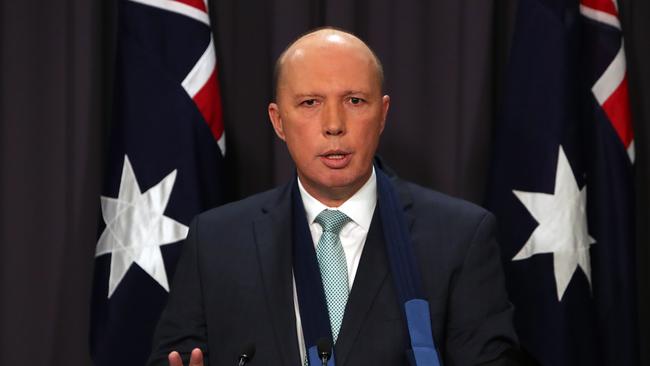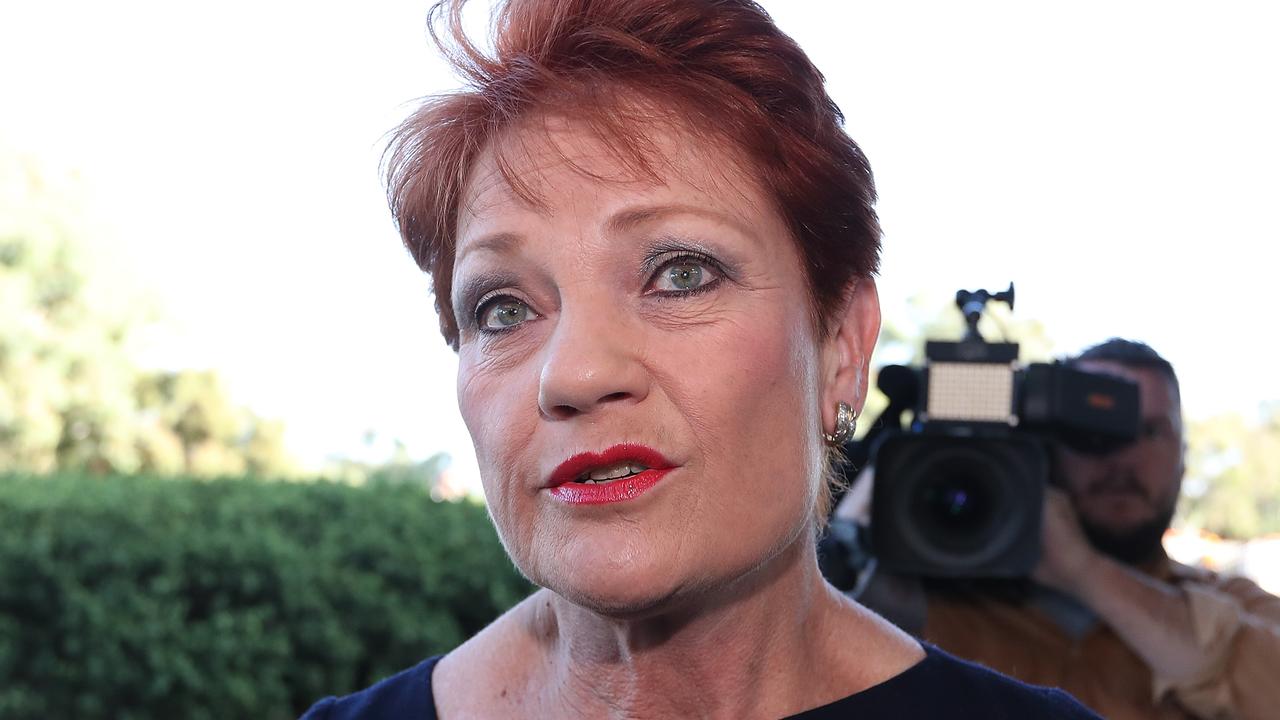Boat turnbacks critic not dealing in real world, says Dutton
Peter Dutton has lashed the UNHCR for calling Australia’s boat turnbacks dangerous and ineffective.

Home Affairs Minister Peter Dutton has lashed the UNHCR for branding Australia’s boat turnback policy as dangerous and ineffective, suggesting the global body did not “deal in the real world”.
The UN refugee agency’s Indonesia chief, Thomas Vargas, warned in The Australian today that boat turnbacks left “other countries to deal with the situation” and warned it was “ultimately not going to work”.
Bill Shorten has also maintained Labor’s support for boat turnbacks in the face of opposition in previous years from members of his frontbench, including deputy Tanya Plibersek and former leadership rival Anthony Albanese.
Mr Dutton yesterday hit back at Mr Vargas’s criticism. “The UN has never been a fan of Operation Sovereign Borders, but we deal in the real world and under Operation Sovereign Borders we have got the children out of detention who arrived under Labor as part of 50,000 people on 800 boats,” he told The Australian.
“By securing our borders we were also able to take in additional refugees, including persecuted minorities from Syria and Iraq. The real threat now is the certainty of boats restarting under a Shorten Labor government.”
Former Labor foreign minister Bob Carr also dismissed the warning from Mr Vargas, arguing that “no serious person in public policy wants to see a revival of irregular migration growing by the month”.
Speaking in 2013 when he was foreign minister in the then Labor government, Mr Carr warned that asylum-seeker arrivals by boat could reach 80,000 a year — nearly half of Australia’s current migration intake of about 160,000.
Mr Carr, a former NSW premier, said yesterday the “greater humanitarian consideration” was to prevent “irregular migrants taking to sea in rotting boats” because of the influence of emboldened people smugglers.
“The practice has been stopped by a combination of the Rudd government’s introduction of offshore processing and offshore resettlement combined with the Abbott government’s successful boat turnbacks,” he said. “I think there’s a consensus across the community that this package represents the lesser evil. I think Indonesia was disadvantaged by Australia presenting itself as an east target.’’
The national co-convener for Labor for Refugees, Shane Prince, said boat turnbacks were “effective at stopping people arriving in Australia” but warned the practice did not help Australia to discharge its international obligations.
Mr Prince argued the policies adopted at the ALP national conference last month — including a commitment to take more refugees from the region — would help minimise boat turnbacks.
“Labor committed to creating an orderly pathway for people seeking asylum who are at risk of people smugglers to give them a realistic alternative to getting on boats,” he said.
He cited Immigration Department statistics, contained in a 2016 parliamentary library paper, showing that Australia had resettled only 560 UNHCR referred refugees from Indonesia during the period 2001 to February 2010.
Greens immigration spokesman Nick McKim backed Mr Vargas, saying “turnbacks have been a disaster in humanitarian terms, as well as for Australia’s international reputation”.
“They represent a complete abrogation of Australia’s legal and moral obligations to people seeking asylum,” he said.




